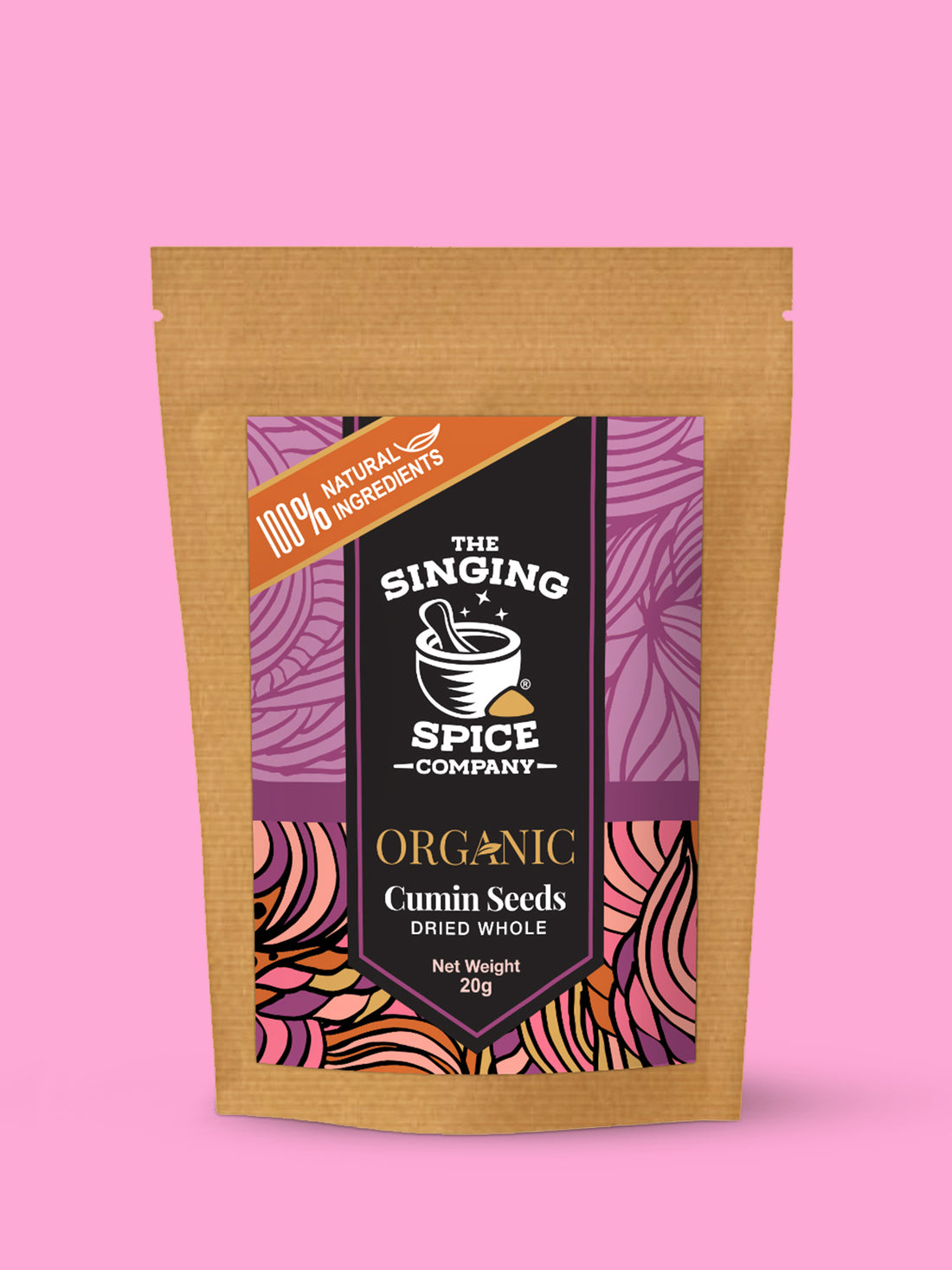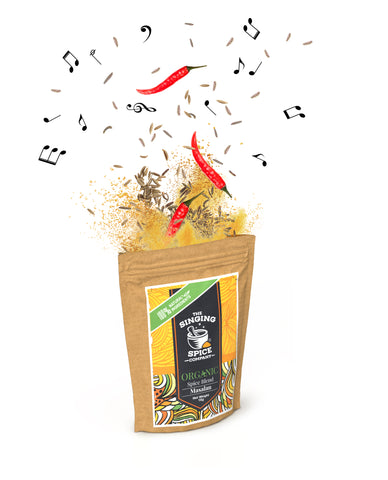
The History and Health Benefits of Cumin Seeds
Share
Cumin – ‘The King of Condiments.’
 Flavour – Earthy| Herby | Woody
Flavour – Earthy| Herby | Woody
Spice Story
Evidence of cumin in Egypt’s pyramids suggests that it was in use more than 5,000 years ago. The Ancient Greeks and Romans used cumin as a table seasoning alongside salt. It was regarded as the ‘king of condiments, ‘ by Roman naturalist Pliny the Elder. In modern day Georgia and Africa, salt combined with cumin is still a popular seasoning. From the 7th century CE, Arab traders transported cumin on their spice caravans to North Africa and east to Iran, India and Indonesia and China. Consequently, it became a key component in many regional spice mixes including Baharat (Middle East), Garam masala and Panch phoran (India) and Ras el hanout (Morocco).
Thought to be native to Egypt’s Nile Valley and the Eastern Mediterranean, cumin is cultivated in India (the largest producer and consumer), China, Syria, Turkey and Iran. Palestine and USA are also other producers.
Health Benefits
In the Ayurvedic system of medicine in India, cumin seeds have immense medicinal value, particularly for digestive disorders. They are used in chronic diarrhoea and dyspepsia.
Cumin seeds are nutritionally rich; they provide high amounts of fat (especially monounsaturated fat), protein, and dietary fibre. Vitamins B and E and several dietary minerals, especially iron, are also considerable in cumin seeds. In conventional spices, these vitamins and minerals are lost due to excessive use of fillers, anti-caking agents and chemicals but not so in organic spices.
Although we tend to widely use the seeds of cumin (C. cyminum L.) as a spice for their distinctive aroma, they are also commonly used in traditional medicine to treat a variety of diseases, including chronic diarrhoea and dyspepsia, acute gastritis, diabetes, and cancer. As a child, my mother would make us Kahwa ( a traditional hot herbal drink) using cumin seeds as one of its ingredients to help with an upset stomach and to aid digestion.
Cumin may be helpful for people trying to their manage body weight. Consuming 3 g of cumin powder per day has also resulted in lower levels of total cholesterol. Cumin is also known to significantly reduce blood sugar, insulin, and hemoglobin A1c levels. These are all markers of good diabetes management.
Cumin may play a role in helping the body handle stress and may help fight the effects of stress by working as an antioxidant.
Kitchen Creativity
Cumin is an essential component in most Indian, North African, Levantine and Mexican cuisine. Used alone or in combination with other spices, it permeates a diverse range of savoury dishes with its distinctive, highly aromatic and pungent flavour.
The Science of Blending
Cumin has a uniquely musky, spicy flavour which derives from cuminaldehyde, a compound found in roast beef and cinnamon but sparingly in other spices. Other important compounds include pinene, which gives the spice its dry, pinewood nuance and cymene which has a fresh aroma.
Let the King Sing!
Have you tried our chemical free, non- GMO, organic cumin seeds.
Cumin is particularly responsive to toasting. Why not bruise and dry fry our organic cumin seeds to produce nutty, roasted flavours or release the sulphur within the spice to bring flavours of green vegetables and roast meats.
Our organic cumin seeds add flavour to all types of Dhal dishes and other lentil stews, or why not scatter over hummus. Shop Now
Happy Cooking!
Sofia
Founder
